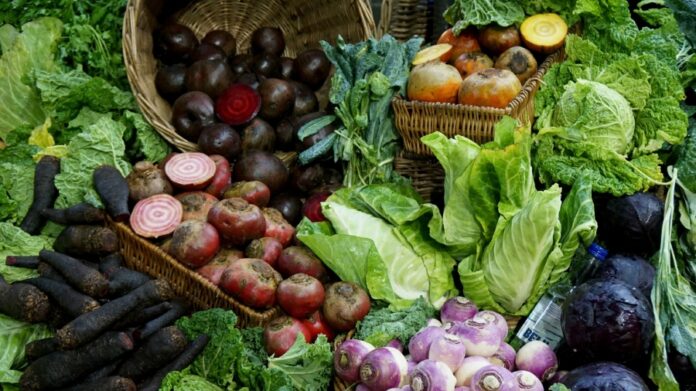All our favourite fruits like mangoes and litchi and delicious leafy greens are available in the summer season. However, it becomes more challenging to keep fruits and vegetables fresh for an extended period due to the hot and humid weather.
If you want to prevent that, we have some tips about the right storage techniques and precautions. Using these hacks, you can prolong the shelf life of your produce and minimise waste. Let us quickly note down some effective tips to help you keep your veggies and fruits fresh during the summer.
Proper storage
Store fruits and vegetables in the refrigerator promptly after purchasing or harvesting them to slow down the ripening process and prevent spoilage. Use perforated plastic bags or vegetable storage bags to maintain optimal humidity levels and prevent excess moisture buildup, which can cause rotting.
Separate ethylene-producing fruits
Certain fruits, such as apples, bananas, and tomatoes, release a natural gas called ethylene, which speeds up the ripening process of other fruits and vegetables. To prevent premature ripening and spoilage, store ethylene-producing fruits separately from other produce or in designated ethylene-absorbing containers.
Properly wrap leafy greens
Leafy greens such as lettuce, spinach, and kale are prone to wilting and drying out quickly in warm temperatures. To keep them fresh, wrap unwashed leafy greens in paper towels or clean kitchen towels before storing them in the refrigerator. This helps absorb excess moisture and prevents wilting.
Avoid moisture
Excess moisture can accelerate the growth of mould and bacteria on fruits and vegetables, leading to spoilage. To prevent moisture buildup, thoroughly dry produce before storing it in the refrigerator and avoid washing them until just before use. Additionally, line refrigerator drawers with paper towels to absorb excess moisture and maintain freshness.
Store root vegetables properly
Root vegetables like potatoes, carrots, and onions have different storage requirements than other fruits and vegetables. Keep them in a cool, dark, and well-ventilated place such as a pantry or cellar to prevent sprouting and spoilage. Avoid storing them near ethylene-producing fruits, as this can hasten decay.
Freeze the excess produce
If you have an abundance of fruits and vegetables that you can’t consume before they spoil, consider freezing them for later use. Wash, chop, and blanch produce before freezing to preserve their nutrients and flavour. Use airtight containers or freezer bags to prevent freezer burn and maintain freshness.


